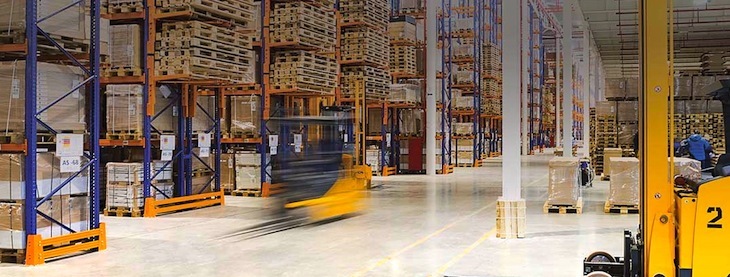ArcBest joins J.B. Hunt, more than 250 companies, in blockchain alliance
by March 19, 2018 4:41 pm 2,141 views

An ArcBest logistics operation.
ArcBest has joined J.B. Hunt, Tyson Foods, and Walmart, as an Arkansas-based company in the logistics and transportation business to embrace blockchain technology. The Fort Smith-based company joins with more than 250 other companies in the Blockchain in Transportation Alliance (BiTA).
BiTA is a consortium of major freight companies seeking to explore applications of the digital ledger technology within the transportation and logistics industry. The shared goal is to develop and set standards for use of blockchain technology moving forward.
Michael Newcity, senior vice president–Chief Innovation Officer of ArcBest and president of ArcBest Technologies, said customers “are looking for logistics partners who can deliver a number of solutions along with trusted, expert advice and a great experience. We believe blockchain technology could benefit the transportation industry by revolutionizing the way people do business. We look forward to working with other industry leaders to ensure standards are established so that the full potential of this technology can be realized.”
Joining BiTA is not ArcBest’s first play in the arena as it continues to support blockchain research and education through the University of Arkansas Sam M. Walton College of Business. The university will host its first-ever Blockchain Conference on April 6 at Fayetteville’s Chancellor Hotel. Tyson and Walmart also are supporters of the UA research, but they have yet to join with BiTA.
A blockchain is a type of digital and decentralized ledger maintained across a network of computers and protected through encryption. It’s the underlying technology behind BitCoin and other cryptocurrencies, but it also can be used to create efficiencies across a variety of industries, including healthcare, banking, and government. On the freight/logistics side, BiTA notes, blockchain could be used to enhance transparency within the supply chain, maintain accurate records of asset maintenance and ownership history, and secure freight payments and smart contracts, among other ideas.
Davy Mears, vice-president of technology at Fort Smith-based ProPak Logistics, previously told Talk Business & Politics his employer was in talks with other partners about implementing blockchain, but needed “the right application,” which it did not have at the time. Mears said in the previous interview he was sold on the technology’s usefulness.
“We are interested, and we monitor it, and we would love to be able to sit here and say, ‘Yes, we’ve implemented blockchain, and here’s the application for it.’ But we want to make sure we’re not too early in the hype cycle, and we don’t want to get out too far in front of our partners.”
Reuters recently reported the first-of-its-kind completion of an international agricultural trade using blockchain among five entities that included Louis Dreyfus Co., Shandong Bohi Industry Co, ING, Societe Generale and ABN Amro. The cargo: U.S. soybeans. The destination: China. The result: “We noticed very significant efficiency gains … far beyond what we expected,” Robert Serpollet, global head of trade operations at Louis Dreyfus, told the newswire, adding that time spent processing documents and data had been reduced “five-fold.”
